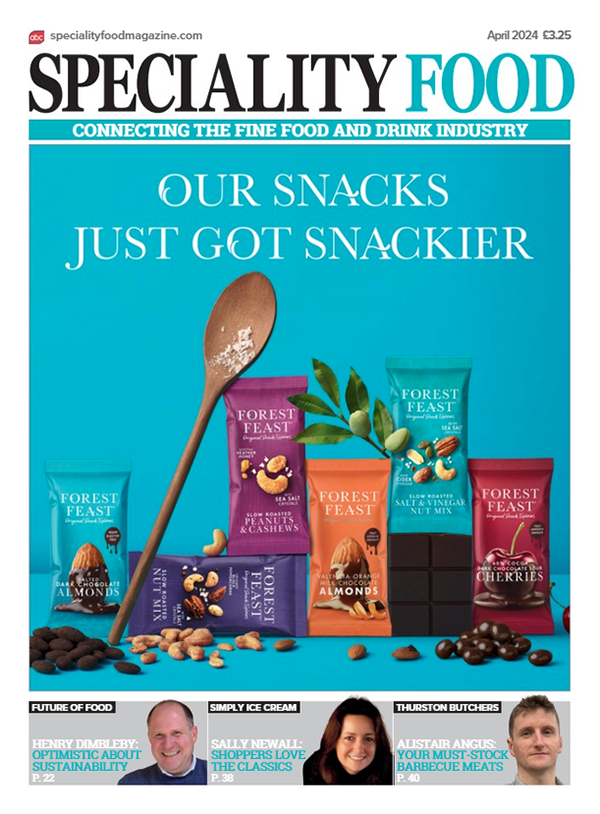“A pinch of flavour”

- It’s time to go left field rather than safety-first
- “Fashion or for keeps?”
- “New year and new possibilities”
- “What is in a name?”
- “The art of shopping”
It’s as if two teams of research scientists have gone to war… firstly there are the white-coated folk who champion new products and try to find the next wonder food, while at the other extreme laboratories start by listing the dire health consequences of nearly everything we enjoy eating.
To the inexpert onlooker it seems that the foods which are marked bad for us are always the ones that taste best. Nothing warms the cockles of a tabloid editor’s heart so much as the revelation that an old established and much-loved delicacy turns out to be deadly. This spring it was the turn of bacon, and the villains of the piece were nitrates and nitrites. For generations traditional bacon curers have been adding a spoonful of nitrate to the mix to help kill off unwelcome bacteria and to add an extra salty tang (it also imparts a pleasant rosy pink colour to bacon, pork pies and pickled beef [aka pastrami]).
The problem with leaving nitrate out of the recipe is that we have an almost Pavlovian response to a sizzling rasher and we like it just so. Folklore would have it that most lapsed vegetarians blame the scent of a bacon sandwich for their downfall. We are all told how to eat healthily, but from a scientist’s rather than a gastronome’s perspective. In the recent flood of advice, daily helpings of red meat and bacon have been linked to bowel cancer. But the boffins don’t stop there; they recommend a red meat and bacon portion size of 70g. Very few of us have seen a 70g steak, it would be tiny – about a third of the size of a supermarket prepacked offering and might be a good way to whet the appetite. Bacon lovers would probably find it easier to search for nitrite replacements. Changing recipes is easier than changing mindsets.
Fortunately as well as all the scientific doom and gloom, we can also see a new sector of the speciality food market going gang-busters. British Charcuterie is here to stay. It’s estimated that the last few years have seen over 100 small producers setting up and developing charcuterie product ranges from scratch. These newly hatched small producers avoid the burden of history – Continental cured meat experts may well use nitrate in their recipes because their fathers and grandfathers did so before them. And there is always the “name game”, echoing a former US president who remarked “the French have no word for Entrepreneur”.
Who would bet against a cured meat name tussle between English and Continental producers? British salami, British hams, even a British mortadella – perhaps the latter featuring donkey meat like the original? In the pushy world of restaurants they rely on these spurious authenticity debates to generate publicity. So this spring Gordon Ramsay opened a Chinese eaterie called Lucky Cat but with a non-Chinese head chef. Quick as a flash Aldo Zilli took to the airways to assert that he would only use Italian chefs in his restaurants. For years some of the best Italian cooking in London could be found in a kitchen with an English head chef. It makes sense to trust the quality of the chef not his or her birth place. And that goes for charcuterie as well.
more from Fine Food
-
“The Joy of Lists”
11 September 2019 Fine FoodSo how was your summer? Time to savour traditional seasonal attractions… Sunny Glastonbury… Cricket’s World Cup. -
“Jellyfish”
02 September 2019 Fine FoodThe thoughtful diner’s watchword is that “you cannot have anything better than exactly what you want.” -
“Bring on the afternoon telly”
19 March 2019 Fine FoodThe signs are all there and after studying the runes the BBC has devised a winning programme for that difficult afternoon telly slot.



